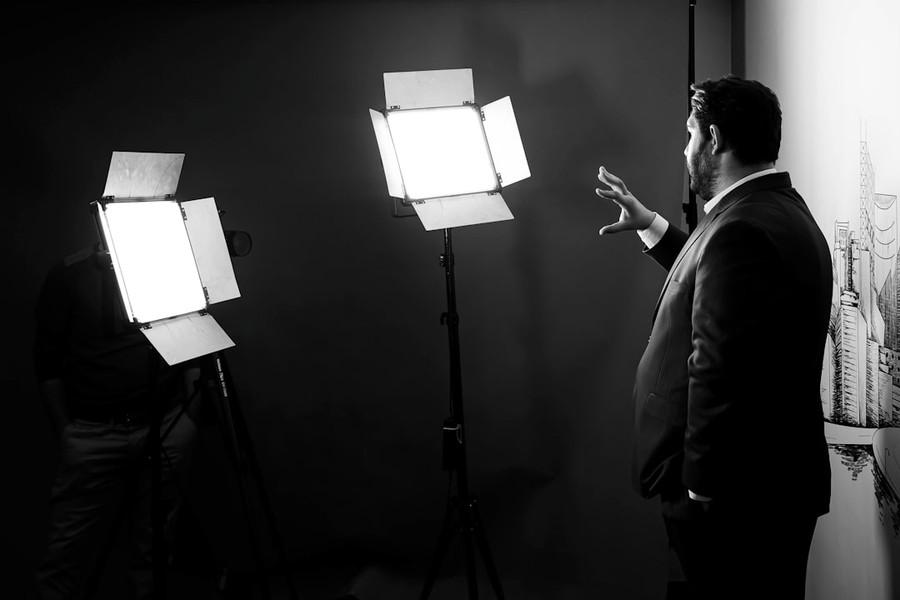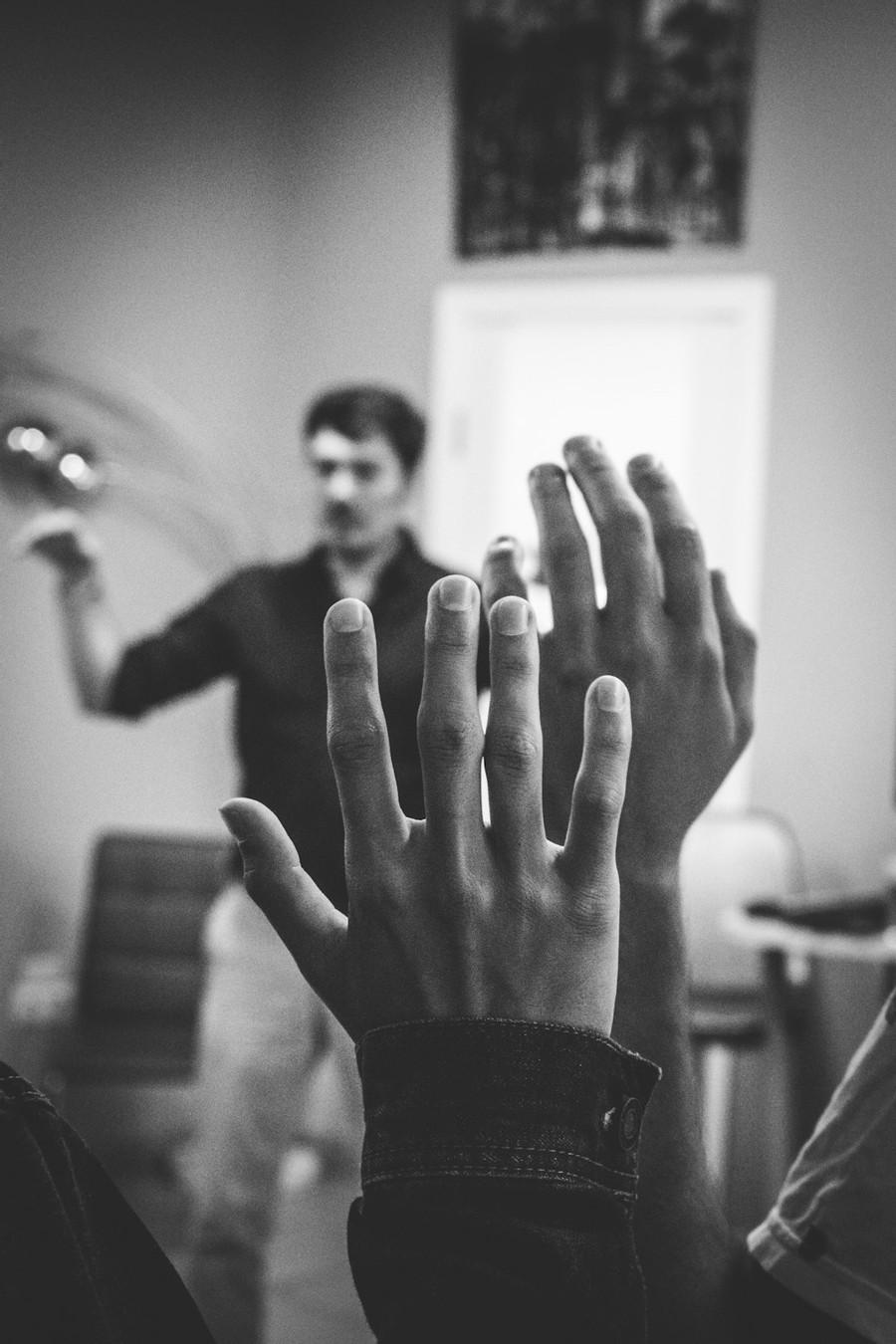14 habits of people who are masters at reading others
Curated from: hackspirit.com
Ideas, facts & insights covering these topics:
21 ideas
·45.9K reads
190
7
Explore the World's Best Ideas
Join today and uncover 100+ curated journeys from 50+ topics. Unlock access to our mobile app with extensive features.
Introduction
Have you noticed how some people seem to have an almost superhuman ability to read others?
- While some people can’t seem to pick up on the most obvious social cues, these masters of reading others can tell how someone is feeling, what they’re thinking, and even guess their intentions without the other person having to say anything.
- By adopting a few habits, you can also transform into a proficient reader!
- From being observant to being skilled at reading non-verbal cues, we’re gonna take a look at 14 habits people who are masters at reading others have.
289
3.91K reads
1) They are observant
- The first habit I need to point out about master readers is just how observant they are.
- That means that they don’t walk around glued to their phone screens – texting their friends or constantly checking their social media.
- They also don’t have headphones blasting away, leaving them oblivious to the sounds surrounding them.
- Instead, they pay close attention to their surroundings and the people they’re interacting with.
- They notice everything from what someone is wearing to their facial expressions and their body language.
- So, start by being present and aware of what’s going on around you.
326
3.47K reads
2) They Actively listen
- People who excel at reading others are active listeners.
- Active listening means really hearing what is being said so that you can understand where the other person is coming from.
- But active listening isn’t just about hearing what is being said. It’s also about trying to figure out the real and often hidden meaning behind what is being said.
- When it comes to active listening, it’s important to ask questions and clarify anything that doesn’t make sense, as well as to know how to read nonverbal cues.
309
2.99K reads
3) They Read Body language
- Body language reveals so much about a person’s thoughts, feelings, and intentions that it’s no wonder there are classes teaching everyone from businessmen to politicians (even presidents) about nonverbal communication!
- So, if you want to become a master at reading others, you need to pay attention to nonverbal cues and learn to decipher them.
- Below are some tips to get you started.
295
2.78K reads
Some Tips On Body Language
- Pay attention to posture: Look at the person’s chest and shoulders. When the chest is full and the shoulders are back (think of a rooster), it’s a sign of confidence!
- But, when the chest and shoulders are pulled back causing the back to arch, it means that they’re not sure of themselves.
- Look at facial expressions: From a smile to a frown and everything in between, facial expressions reveal a lot about a person.
304
2.81K reads
Some Tips On Body Language (Part 2)
- Don’t forget gestures: For example, folded arms usually aren’t a very welcoming gesture. Just picture someone you’ve crossed waiting for you to explain yourself. Well, what do you have to say for yourself?
- Another gesture would be one arm across the other. While resembling the first gesture, the meaning is quite different as it reveals insecurity and lack of confidence.
- Handshakes: A firm handshake is a confident and assertive way of greeting someone. It involves grasping the other person’s hand firmly and shaking it up and down a few times. It conveys a sense of strength, confidence, respect.
300
2.63K reads
Some Tips On Body Language (Part 3)
- A weak handshake , often referred to as a “limp fish”, is the opposite of a firm handshake and can be perceived as lacking in confidence or enthusiasm.
- Basically, it involves a limp grip (if any) and minimal shaking.
- A double handshake involves using the other hand to grip the other person’s forearm or elbow while shaking their hand. This can be a sign of respect, affection, or camaraderie, and is often used in formal or ceremonial situations.
296
2.45K reads
Some Tips On Body Language (Part 4)
- A dominant handshake involves positioning the hand on top of the other person’s hand, which can be seen as a sign of dominance or superiority.
- This type of handshake is generally not recommended, as it can be perceived as aggressive or confrontational.
288
2.42K reads
4) They are Empathetic
- Did you know that being empathetic can really come in handy when trying to read others?
- Empathy is all about putting yourself in the other person’s shoes with the goal of seeing things from their perspective.
- If you want to read someone, you need to be able to put aside your own views and opinions and try to see things from another point of view.
- If you can’t, if you’re close-minded and unable to feel the joys and sorrows of other people.
- In short, if you’re an empathetic person, you’re going to have a much easier time getting insight into another person’s feelings, motives, and opinions.
298
2.12K reads
5) They Pay Attention to Tone
- Master readers know that they should pay attention to the tone of voice in order to pick up on what isn’t being said out loud.
- Turns out that tone of voice can convey a lot of information about how someone feels as well as whether their intentions are good or bad.
- If you want to understand what the other person is really saying, you have to listen.
293
2K reads
Some Tips On Tone Of Voice
- A raised voice, sharp tone, and fast pace could mean the person is angry or frustrated.
- A high-pitched, upbeat tone, and fast pace could mean they’re happy.
- On the other hand, a quiet, low-pitched tone, and slow pace could mean they’re sad.
- A low-pitched tone and slow pace with an emphasis on certain words could be a hint that they’re being sarcastic or ironic.
- A firm and confident tone means they’re in charge because it signals authority.
- A warm and friendly tone generally means they’re being sincere.
- A high-pitched, soft tone, with a slow pace could be a plea for help or understanding.
305
2.04K reads
6) They make eye contact
- Did you know that making eye contact is very important when it comes to building trust?
- It’s true. That’s why people who are masters at reading others have the habit of making eye contact when they speak to someone – it helps them figure out whether or not they can trust the person.
- If a person can’t make eye contact or maintain it for long, it’s clearly because that person is uncomfortable.
- It means that person is embarrassed or hiding something, and thinks you’ll somehow spot it if there's eye contact (interestingly enough, it’s the opposite).
296
1.9K reads
7) They are Patient
- When you’re rash to form an opinion about someone, you risk making a huge mistake.
- If you base your opinion on first impressions – you can miss out on meeting a great person (maybe even the love of your life) because you didn’t take the time to get to know them, or, you could end up being duped by someone who seemed trustworthy.
- That’s why master readers take the time to listen and observe, to try to understand the other person’s motives and where they’re coming from.
- They also like to ask questions, listen carefully, and take the time to process the information they are receiving.
295
1.74K reads
8) They Take Note of Patterns
- Identifying patterns in a person’s behavior to understand them better is what psychologists do. Psychologists and master readers that is!
- Basically, they look for patterns in behavior or speech and pay attention to recurring themes or topics that could reveal underlying emotions or motivations.
- I know it sounds complicated but with time, you get the gist of it.
294
1.79K reads
9) They Use Their Intuition
- There’s a lot to be said for intuition!
- A lot of us tend to ignore our intuition or that gut feeling, preferring to listen to concrete facts.
- But even though we don’t exactly understand how intuition works (is it instinct or psychic ability?), it turns out that it’s often spot-on.
- That’s why people who are masters at reading others aren’t quick to dismiss their intuition. If their gut is telling them not to trust someone, they listen to the warning and take a closer look at the person.
293
1.65K reads
10) They Pay Attention to the Context
- People who are masters at reading others know that context is an important factor when it comes to interpreting someone’s behavior and emotions.
- Think about it: Context provides the information that determines how a message is received and interpreted.
- That’s why you need to pay attention to the situational factors that are likely to influence a person’s mood or behavior – such as the environment, the people around them, and any recent experiences they might have had.
289
1.59K reads
11) They Don’t Judge
- Instead of passing judgment, master readers approach interactions with an open mind, seeking to understand the other person’s point of view and the reasons behind their behavior.
- They ask questions, listen carefully, and observe nonverbal cues to gain insight into the person’s thoughts and feelings.
- You see, by maintaining a non-judgmental attitude l, people who are masters at reading others can establish trust and build a positive rapport with the people around them.
- They know that everyone is different, and instead of judging or trying to change people, they work with these differences.
288
1.5K reads
12) They are Objective
- Look, if you’re trying to read someone, it’s important to put your opinions and feelings aside. Otherwise, you could end up being influenced by your biases and emotions.
- Master readers like to focus on what is being communicated through words, actions, and nonverbal cues.
- By being objective, they avoid making assumptions or jumping to conclusions.
- Do you think you could be objective?
291
1.55K reads
13) They Have Emotional Intelligence
- Master readers usually have emotional intelligence. That means they’re in tune with their emotions and know how to manage them.
- It also means that they’re good at recognizing other people’s emotions.
- But not everyone has this type of intelligence, a lot of people seem to be oblivious to how others are feeling, and that’s certainly a drawback if you’re trying to read someone.
- All in all, emotional intelligence is just another characteristic that comes in handy when reading others.
290
1.47K reads
14) They Practice
- Practice makes perfect.
- If you want to pick up some new skills or learn the habits of people who are masters of reading others, you have to practice.
- It takes time and practice to learn anything, so don’t worry if it doesn’t happen overnight.
- I mean, how do you think that people who are masters at reading others became masters at reading others? By practicing and perfecting their skills over time of course!
- What’s more, they believe in lifelong learning.
- That’s why they reflect on their experiences and are always looking for opportunities to improve their reading skills.
289
1.37K reads
The Benefits of Reading People
So, what’s the big deal? Why is it so important to know how to read other people?
- Improved communication
- Improved decision making
- Improved leadership skills
- Improved sales effectiveness
- Improved conflict resolution
293
1.7K reads
IDEAS CURATED BY
Lawyer turned Artist Visionary Curator & Gallerist. Empowering self-love and joy through art & words. www.innerjoyart.com 💝 Instagram : dymphna.art
CURATOR'S NOTE
Improving communication with others is not about talking, but more of listening and observing to understand neutrally, openly and without judgement. These are habits / skills that are useful for anyone in a leadership position or who wants to understand people more.
“
Similar ideas
13 ideas
18 ideas
6 ideas
Read & Learn
20x Faster
without
deepstash
with
deepstash
with
deepstash
Personalized microlearning
—
100+ Learning Journeys
—
Access to 200,000+ ideas
—
Access to the mobile app
—
Unlimited idea saving
—
—
Unlimited history
—
—
Unlimited listening to ideas
—
—
Downloading & offline access
—
—
Supercharge your mind with one idea per day
Enter your email and spend 1 minute every day to learn something new.
I agree to receive email updates





















